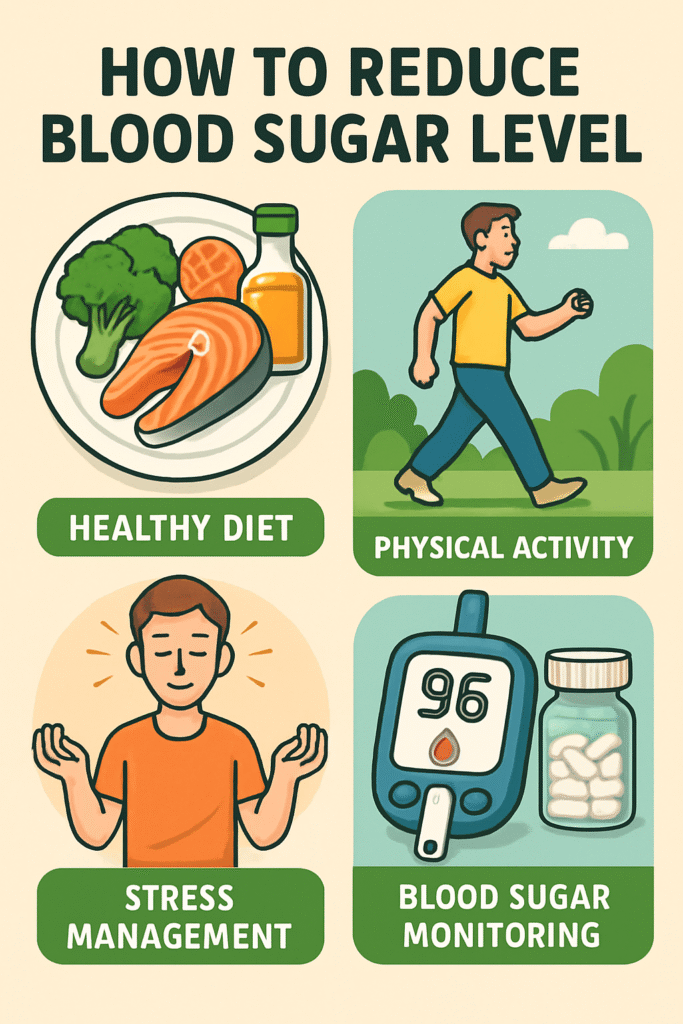
Natural 6 Ways to Lower Blood Sugar: Simple Habits for a Healthier Life
Blood sugar is nothing else, when we eat carbohydrates, then it breaks down into glucose & this glucose circulates in the blood. The glucose level is controlled by the insulin hormone.
For staying healthy, your blood glucose level should be in a range. Hyperglycemia is a condition where your blood glucose level is high in blood. If we ignore this condition, then it can lead to a serious complication.
But don’t worry, you can manage or prevent the chances of this disease to a certain level by changing your lifestyle.
- Eat a Balanced, Low-Glycemic Diet
Low glycaemic food digests slowly, thus it prevents a glucose spike. You can eat
- Oats
- Sweet potato
- Legumes
- Spinach
- Broccoli
Protein :
You can include protein in your diet like
- Chicken
- Fish
- Eggs
- Tofu
- Paneer
Healthy fats:
You can also include healthy fats in your diet, like
- Avocados
- Olive oil
- Nuts
What should you avoid?
- Packet food
- Sugary drinks
- Baked products
- Refined carbs
- Processed snacks
Best tip: Portion control is the main key point for reducing the glucose spike.
2. Stay Physically Active
You have to stay physically active to reduce your blood glucose level.
- A 15-minute walk after your meal helps to maintain the blood sugar level.
- Muscle building also helps to maintain the blood glucose level
- Yoga & stretching
- Manage Stress Levels:
Stress level increases the cortisol hormone release, which raises the glucose level in the blood.
You can manage your stress level by
- Deep breathing exercise
- Talking with friends
- Meditation
- Writing down everything on paper (Journaling)
Stress management is a powerful tool for creating a healthy life.
3. Enhancing sleep quality
Your sleep quality can also impact your blood glucose level.
- You have to stick to bedtime and wake time
- Create a nice sleep environment
- Limit your Caffeine intake
- You have to avoid screen time for an hour before bedtime.
A good quality of 7 to 9 hours of sleep is compulsory for a healthy lifestyle.
4. Drink plenty of water
Water helps to flush our excess sugar from the blood & supports the proper functioning of kidneys.
5. Monitor Your Blood Sugar
If you are diagnosed with diabetes, then you have to check your blood sugar level regularly
6. Consult a doctor.
Self-medication is not advisable; you have to consult a doctor. He will provide proper medicine to control the blood sugar level.
Conclusion: Small Steps, Big Impact
Managing blood sugar doesn’t demand extreme dieting or severe lifestyle shifts. Easy, lasting habits—such as walking after meals, increasing fibre intake, lowering stress, and improving sleep—can have a notable impact.
Whether you’re aiming to reverse prediabetes, manage diabetes, or simply enhance your metabolic health, start with small changes and expand from there. Always involve your healthcare provider in your plan for the safest, most effective approach.